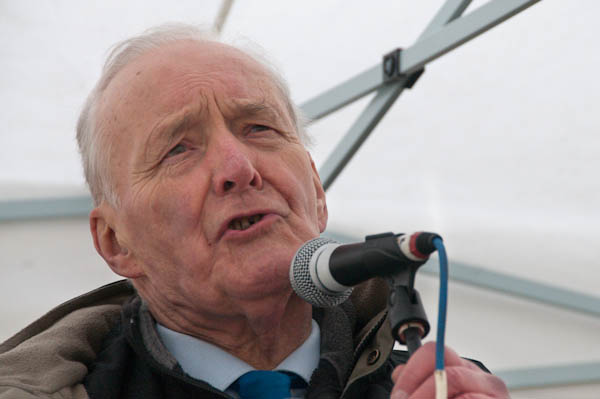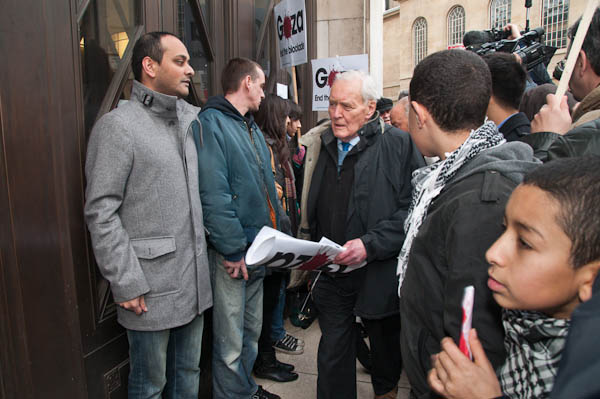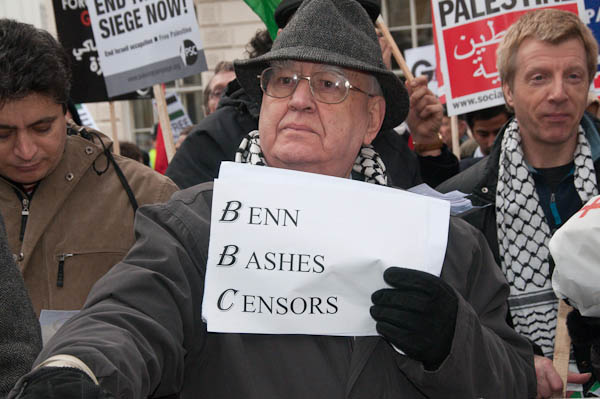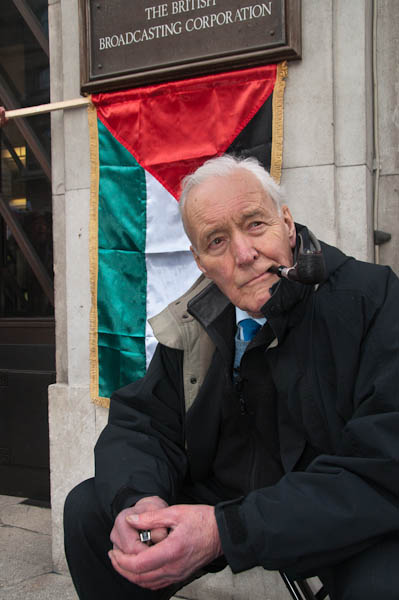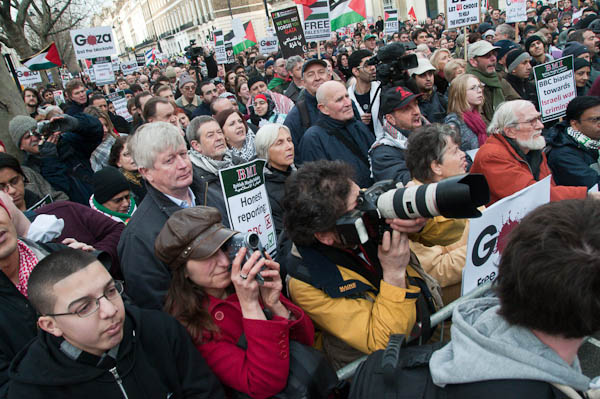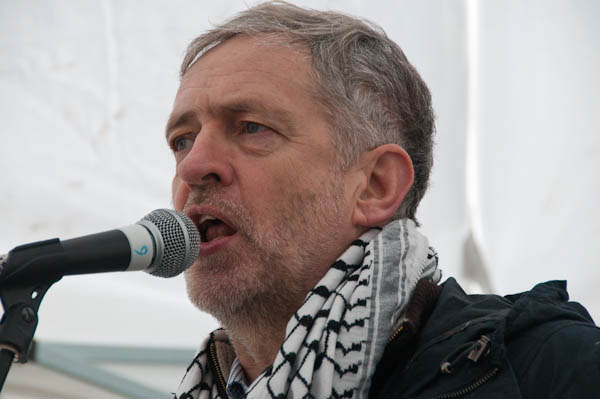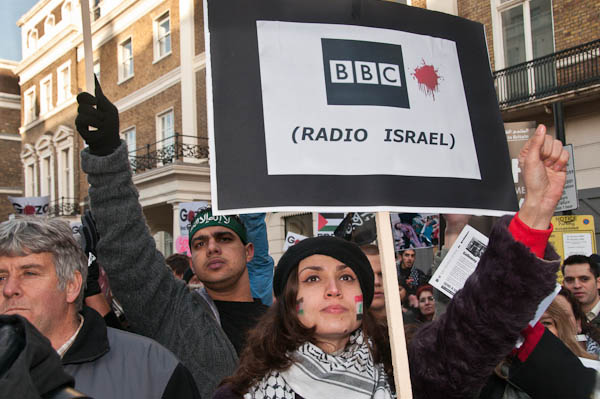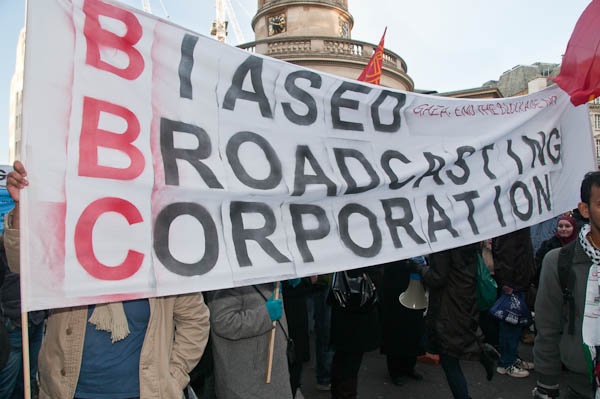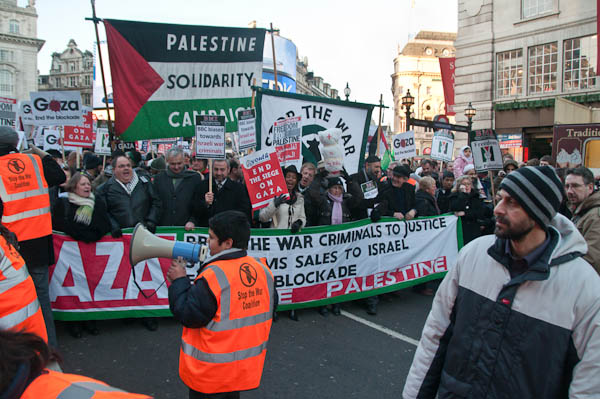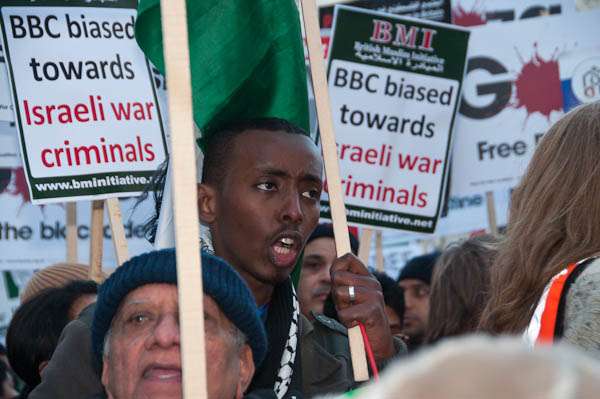Anti-Racist & Migrant Rights reclaim Pride – 8 July 2017

In 2017 the organisers of the official London Pride decided to strictly limit those taking part to groups that had made an official application with those who were approved being issued with armbands for their members to go on the route. In previous years the parade had been open to all, with smaller and more radical groups joining on the end of the march behind the main participants.
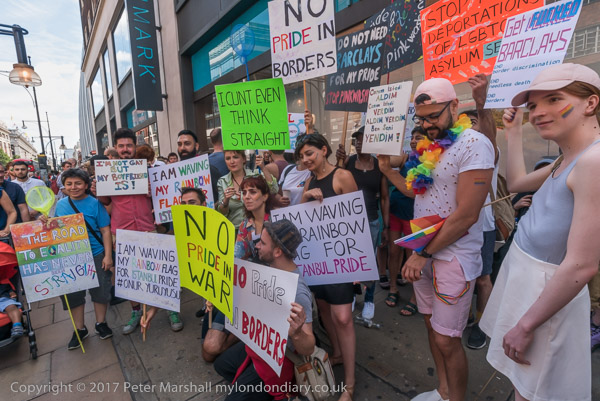
For years many in the gay community had protested that, as I reported “Pride over the years has degenerated from the original protest into a corporate glitterfest led by major corporations which use it as ‘pinkwashing’ to enhance their reputation and it includes groups such as the Home Office, arms companies and police whose activities harm gay people in the UK and across the world.”
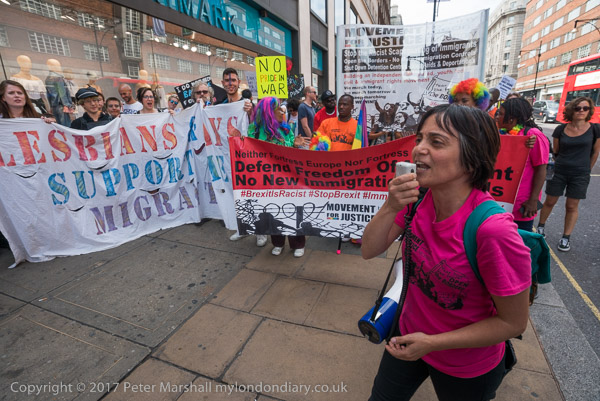
The new policing of participation seemed to them a further step in the direction of corporate control, making it no longer a community event, but one dominated by commercial interests.
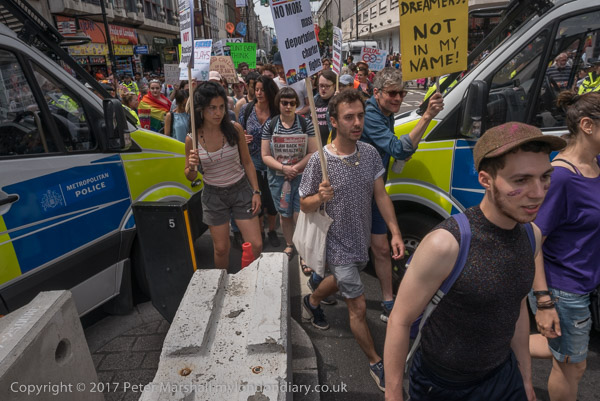
I don’t think those who organised the Migrants Rights and Anti-Racist Bloc had deliberately set out to challenge the policy, more they had simply not anticipated that it would be applied strictly to prevent them joining in at the end of the parade as usual.
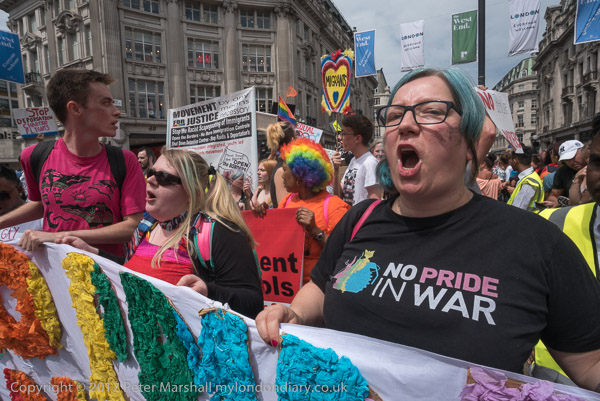
They met up at the west end of Oxford Street. As well as Movement For Justice, Queers Against Borders, Lesbians & Gays Support The Migrants and No Pride in War there was a strong contingent from London Supports Istanbul Pride. They made the point that being gay is still illegal in many countries, and that the persecution of gays is a major reason for many people coming to the UK to seek asylum.
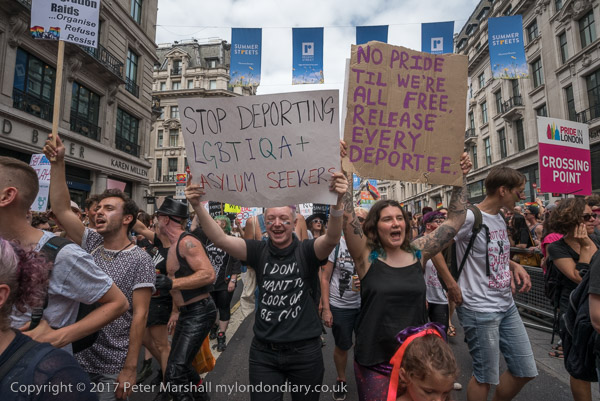
Eventually the group of a few hundred marched off down Oxford Street towards Oxford Circus, where they intended to go up Regent St to join the end of the main parade. Their way onto Oxford Circus was blocked by barriers and police vans, but they simply split up to walk around these, lifting up some of them and grouping up again on Oxford Circus. And of course I went with them.
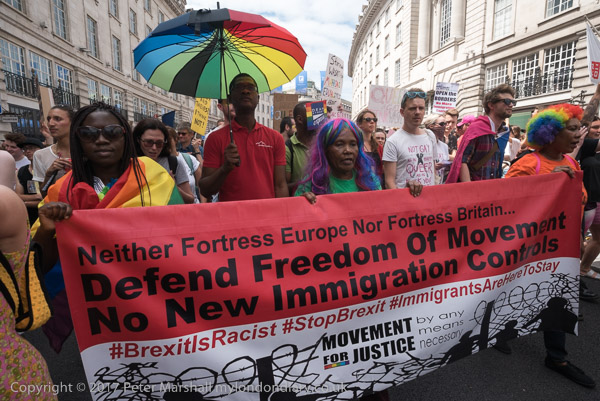
Here they were directly in front of the head of the main parade, stopping it from starting, and surrounded by large crowds of people who had come to see the procession. They tried to march up past the Pride stewards to the back of the parade but were stopped. There followed some minutes of argument, with the group staying in place in the middle of Oxford Circus and stewards refusing to let them go to join the main event.
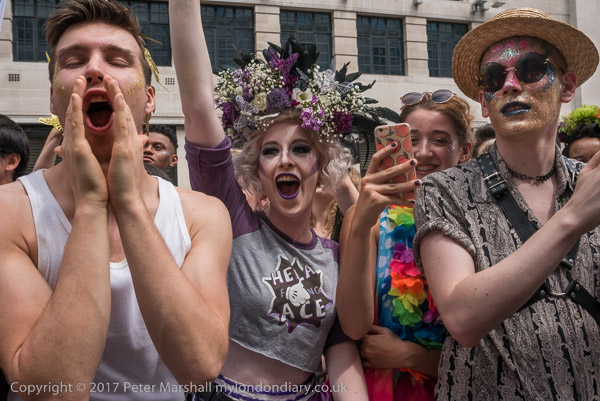
Police made some effort to get both sides to come to a compromise or get the Anti-racist and Migrants group to leave the area, but failed. Too many people were watching for them to use force to disperse the group – and there were probably many among the spectators who would have joined in to support them. Eventually police decided the group could march along the route and held up the rest of the parade for around ten minutes before they followed.
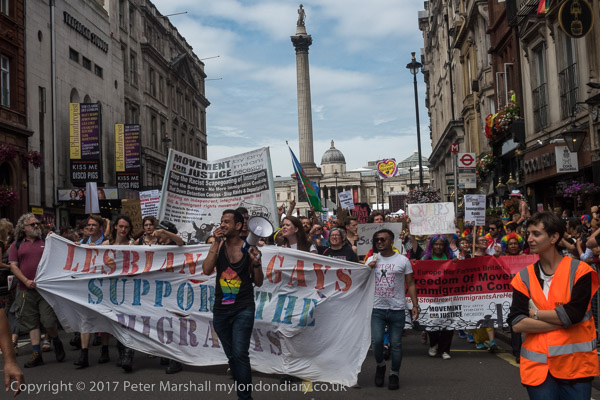
So rather than being as in previous years at the back of the parade, going along the route hardly being noticed, with many of the spectators having by then drifted away to nearby bars or on their way home, the Migrants Rights and Anti-Racist Bloc lead the procession, marching past cheering crowds (though a few did look rather confused) all the way to Whitehall.
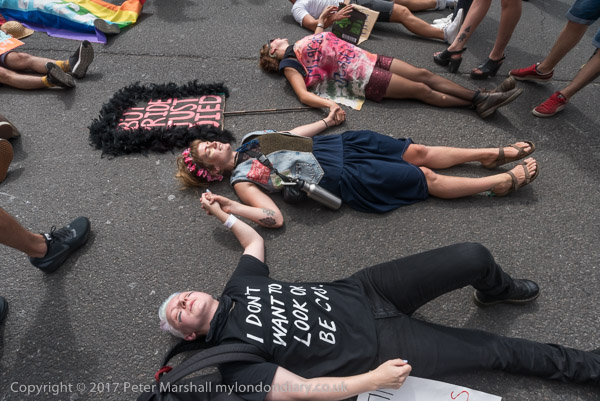
While most of the group ended their protest here, No Pride in War protesters proceeded to lie down across the road with their placards, blocking the route of the official procession which had to wait at Trafalgar Square until police finally managed to clear them, threatening them with arrest.
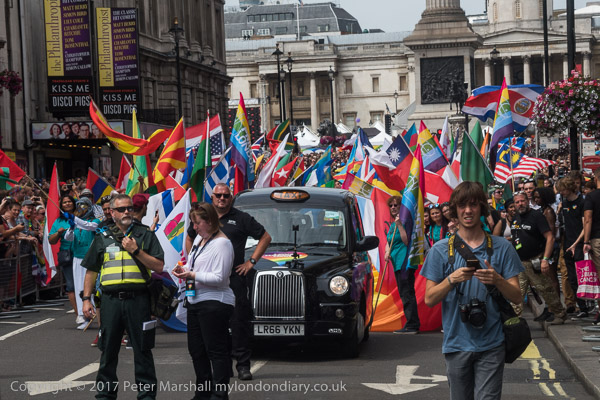
Later that day and on the day afterwards I watched and read the news reports on Pride, some giving it lengthy coverage. But although they had been there with their reporters and cameras, all of the mainstream media had for some reason decided that the very successful – if unintended – gatecrashing of the event by people protesting over Migrant Rights and other issues to wide acclaim by spectators along the route was not news.
More at Anti-Racist & Migrant Rights reclaim Pride.
